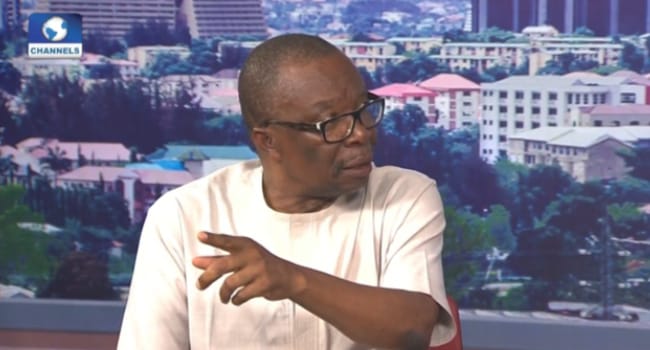The Academic Staff Union of Universities, ASUU, and the Congress of University Academics, CONUA, have warned the government and members of the National Assembly against turning the setting up of new universities to constituency projects.
The academic staff unions in the Nigerian University System, NUS, made their positions known in a chat with New Daily Prime through their National Presidents.
The unions were reacting to the creation of 21 new universities by the current administration in the last two years, and the consideration of over 200 bills seeking to create new universities by the National Assembly.
The National President of ASUU, Prof. Emmanuel Osodeke, noted that the FG and members of the National Assembly are not handling the issue of setting up new universities well.
“When we went on strike in 2022, the proliferation of universities was one of the issues in contention. The situation now has gotten worse. It is so sad and is one way to kill our universities.
READ ALSO: ASUU warns against scrapping of education tax fund in tax reform bills
“Where are the lecturers, the infrastructure and even the funding? In Abeokuta, they are setting up a University of Medicine when there is the Federal University of Agriculture, why don’t they establish a Faculty of Medicine in UNAAB? It is a way to kill our universities. Why are they setting them up? For what purposes? For political reasons? All those ones they are setting up, can their children attend them? They are just creating Constituency Universities.
“In Zaria, we now have two federal universities. In Delta State, we have three federal universities. It is a way of destroying our university system. We hope those universities will be merged later. Where is the money? Where are the facilities?
“We learned that there are over 200 bills in the National Assembly seeking the establishment of public universities across the country. Former President Buhari refused to assent to some of the bills then, but they are having a field day now. They also want to convert Yaba College of Technology into a university, but that should not be done. It is a historic institution, the first tertiary institution in the country. Let them let it be.”
Also speaking, the National President of CONUA, Dr Niyi Sunmonu, said, “The Congress of University Academics (CONUA) has taken note of the recent licensing of 21 new universities, including the conversion of some polytechnics and/or colleges of education to universities. While the union acknowledges the legitimacy of the growing demand for university education, driven by Nigeria’s large and youthful population, it expresses cautious concern about the current trend.
“CONUA affirms that the existing number of universities in the country is insufficient to cater to the increasing quest for quality higher education. However, the union believes that a more prudent approach in the face of dwindling natural resources would be to first focus on strengthening and expanding the capacities of existing universities.
“Rather than establishing new universities, many of which are appearing to emerge as “constituency projects,” CONUA recommends that attention be given to improving infrastructure, staffing, research funding, and student support systems (as we currently have in NELFUND) in established institutions. This approach, in the short term, will yield more meaningful improvements in access and quality.
“In the long term, CONUA is not opposed to the creation of new universities. However, such expansion should be done methodically and sustainably, guided by clear academic, economic, and infrastructural considerations, not political expediency.
“The union urges the Federal Government to balance expansion with quality assurance to avoid weakening the already strained higher education system. Nigeria’s future depends not just on how many universities exist, but how effectively they deliver on their mandate.”
However, it was learned that the FG is liaising with the National Assembly to put a lid on the passage of bills seeking to set up more public universities in the country.
Education Minister Dr Tunji Alausa has been mandated to spearhead the move.
READ ALSO: ASUU warns against scrapping of education tax fund in tax reform bills
Currently, Nigeria has over 160 private universities, 63 federal universities and 63 state-owned universities.
Last February, the FG, through the National Universities Commission placed a one year embargo on the licensing of new private universities.
A lot of people have expressed doubt about the quality of some of the universities in terms of staffing, facilities and quality of education offered to Nigerian youths.
By Alade Adisa

